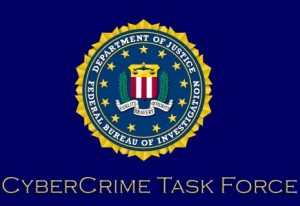 ATLANTA— A 30-year-old Estonia man was sentenced to 11 years in prison for his involvement in an elaborate computer hacking scheme that stole $9.4 million from a credit card processor.
ATLANTA— A 30-year-old Estonia man was sentenced to 11 years in prison for his involvement in an elaborate computer hacking scheme that stole $9.4 million from a credit card processor.
Sergei Nicolaevich Tšurikov and others got unauthorized access to the computer network of RBS WorldPay, what was the U.S. payment processing division of the Royal Bank of Scotland Group PLC, located in Atlanta.
“A leader of one of the most sophisticated cybercrime rings in the world has been brought to justice and sentenced,” said U.S. Attorney Sally Quillian Yates.
Adding, “In just one day in 2008, an American credit card processor was hacked in perhaps one of the most sophisticated and organized computer fraud attacks ever conducted. Almost exactly one year later, the leaders of this attack were charged. This prosecution was successful because of the efforts of the victim, and unprecedented cooperation from various law enforcement agencies worldwide.”
Tšurikov plead guilty Sept. 11, 2012, officials said. He was also ordered to pay $8.4 million as restitution.
This is how this elaborate scheme worked, according to officials.
- The group used sophisticated hacking techniques to compromise the data encryption that was used by RBS WorldPay to protect customer data on payroll debit cards.
- Payroll debit cards are used by various companies to pay their employees. By using a payroll debit card, employees are able to withdraw their regular salaries from an ATM.
- Once the encryption on the card processing system was compromised, the hacking ring raised the account limits on compromised accounts, and then provided a network of cashers with 44 counterfeit payroll debit cards, which were used to withdraw more than $9 million from over 2,100 ATMs in at least 280 cities worldwide, including cities in the United States, Russia, Ukraine, Estonia, Italy, Hong Kong, Japan and Canada.
- The $9 million loss occurred within a span of less than 12 hours.
- The hackers then sought to destroy data stored on the card processing network in order to conceal their hacking activity.
- The cashers were allowed to keep 30 to 50 percent of the stolen funds, but transmitted the bulk of those funds back to Tšurikov and his co-defendants.
- Upon discovering the unauthorized activity, RBS WorldPay immediately reported the breach, and has substantially assisted in the investigation.
- Throughout the duration of the cashout, Tšurikov and another hacker monitored the fraudulent ATM withdrawals in real-time from within the computer systems of RBS WorldPay.

